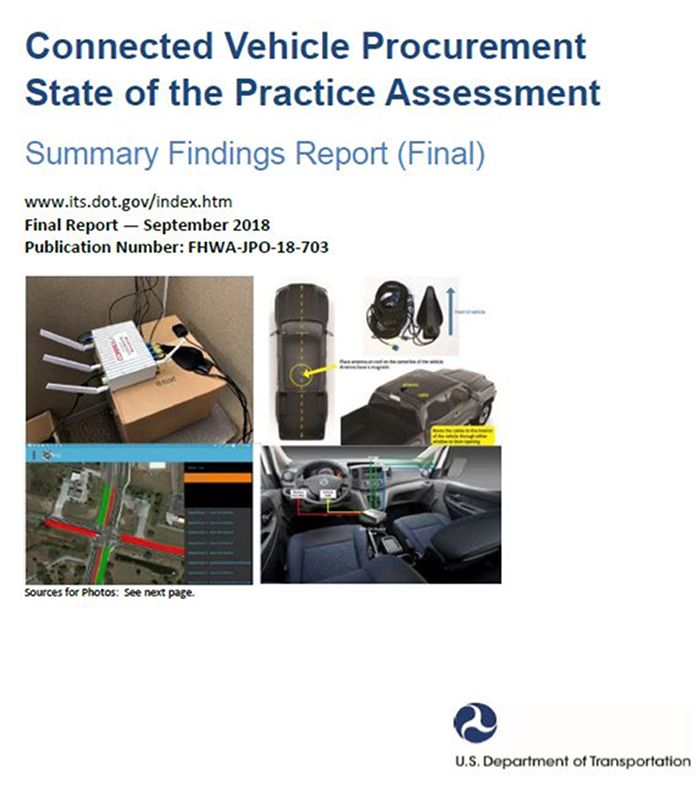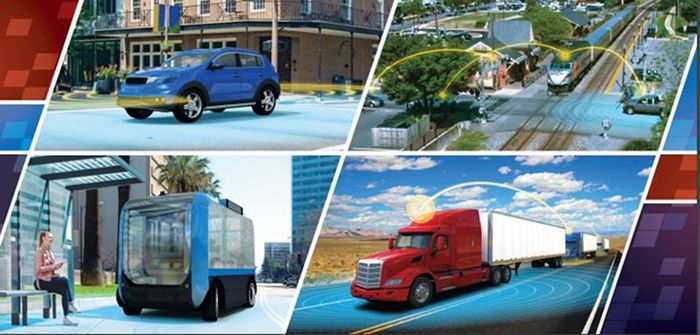The US Department of Transportation (USDOT) has published a new report that provides a detailed look at the current state of practice for the procurement of connected vehicle (CV) technologies by the country’s transportation agencies.
In a variety of forums, procurement has surfaced as an important and challenging topic that agencies must address in deploying CV projects. Due to the emerging nature of this field, most state and local transportation agencies have had limited experience with procuring CV systems.
Given the current state of the marketplace for CV vendors and equipment manufacturers, the USDOT’s Connected Vehicle Pilot Deployment program, the Signal Phase and Time (SPaT) Challenge Initiative, and other CV or connected and automated vehicle (CAV) testing and deployment efforts by leading agencies, the USDOT commissioned an assessment of the state of the practice for procuring CV equipment and systems.
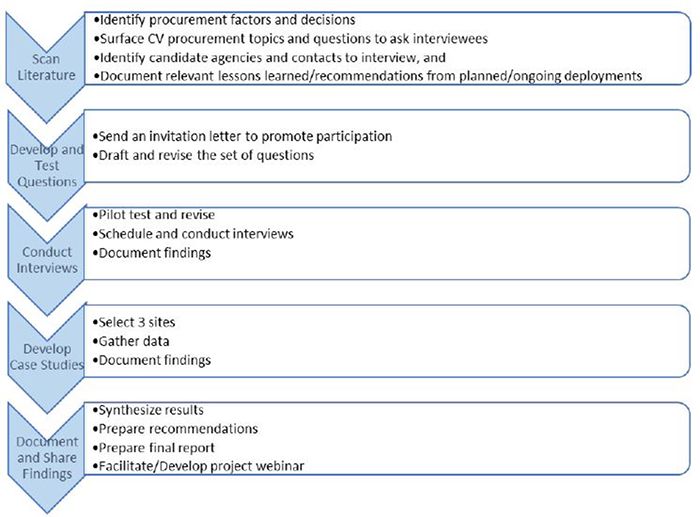 The assessment, Connected Vehicle Procurement State of the Practice Assessment: Summary Findings Report, also aimed to determine initial lessons learned from early deployers and identify next steps and recommended activities toward improving the likelihood that agencies will successfully procure CV projects. The project addresses the question of how state DOTs and local agencies are purchasing CV equipment and systems today and what trends are emerging.
The assessment, Connected Vehicle Procurement State of the Practice Assessment: Summary Findings Report, also aimed to determine initial lessons learned from early deployers and identify next steps and recommended activities toward improving the likelihood that agencies will successfully procure CV projects. The project addresses the question of how state DOTs and local agencies are purchasing CV equipment and systems today and what trends are emerging.
The assessment involved interviews with agency contacts that have either implemented or are planning to implement CV deployments. These agencies discussed their planned or implemented procurement approaches based on their own experiences, challenges faced or anticipated in their CV procurements, and future training and technology transfer needs.
The report offers a synthesis of this information and provides examples of individual responses. Three CV procurement case studies are also documented, including the project background, procurement approach, results, and lessons learned to date.
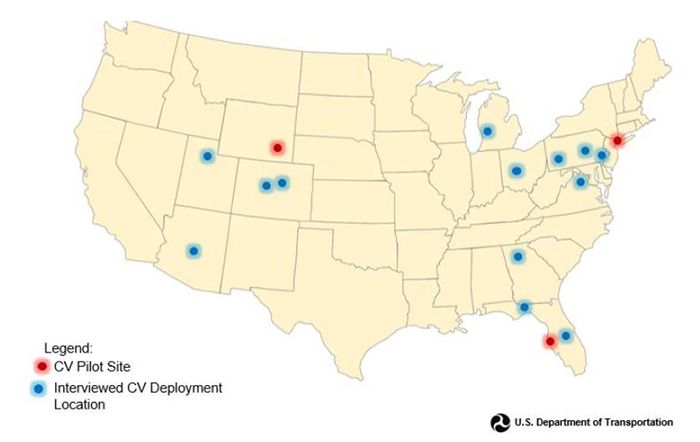 USDOT has also announced that its Intelligent Transportation Systems Joint Program Office (ITS JPO) will be hosting a webinar on the Work Zone Data Exchange (WZDx) project on February 26, at 3:00 pm ET. Featured in the agency’s ‘Preparing for the Future of Transportation: Automated Vehicles 3.0 (AV 3.0)’ report, the WZDx project aims to make travel on public roads safer and more efficient through ubiquitous access to data on work zone activity. Up-to-date information about dynamic conditions occurring on roads, such as construction events, can help automated driving systems (ADS) and humans navigate safely and efficiently.
USDOT has also announced that its Intelligent Transportation Systems Joint Program Office (ITS JPO) will be hosting a webinar on the Work Zone Data Exchange (WZDx) project on February 26, at 3:00 pm ET. Featured in the agency’s ‘Preparing for the Future of Transportation: Automated Vehicles 3.0 (AV 3.0)’ report, the WZDx project aims to make travel on public roads safer and more efficient through ubiquitous access to data on work zone activity. Up-to-date information about dynamic conditions occurring on roads, such as construction events, can help automated driving systems (ADS) and humans navigate safely and efficiently.
Inspired by the General Transit Feed Specification (GTFS), USDOT launched WZDx in March 2018 to jumpstart the voluntary adoption of a basic work zone data specification through collaboration with data producers and users. The webinar will provide insight into the WZDx project and explain the Version 1.1 Common Core Data Specification. Participants will learn more about the project goals, lessons learned, and how to get involved as a data producer or user.
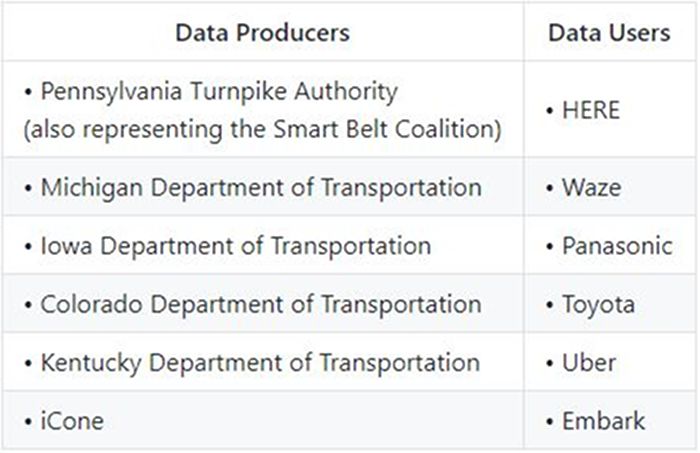 The target audience includes potential work zone data producers and users, data brokers, and standards development organizations. The presenters are:
The target audience includes potential work zone data producers and users, data brokers, and standards development organizations. The presenters are:
- Ariel Gold, data program manager at USDOT’s ITS JPO;
- Todd Peterson, FHWA project manager;
- Nate Deshmukh-Towery, technology policy analyst at the Volpe National Transportation System Center;
- Dani Acosta, data scientist for the Booz Allen Hamilton consultancy.
